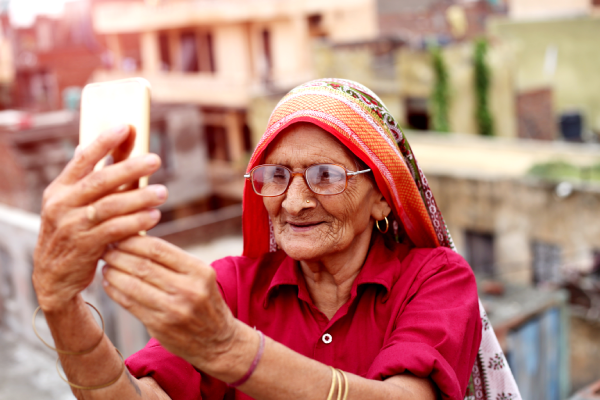August 7, 2025, Islamabad – The GSMA today organized the second edition of its Summit of the Islamabad Digital Nation recognized by the Ministry of Information Technology and Telecommunications (MOitt), the Telecommunications Authority of Pakistan (PTA) and Pakistan mobile networks operators for its tireless efforts and contributions to advance the country's digital landscape.
During the summit, the GSMA published Unlocking of Pakistan's digital potential: reform, trust and opportunityA new report that highlights policy opportunities for the country to close one of the Mobile-Internet mobile use gaps of Pacific Asia and position Pakistan as a regional digital leader.
In statements to the key decision makers at the Summit of the Digital Nation of the GSMA in Islamabad, Julian Gorman, the chief of GSMA of Asia Pacific detailed the findings and key recommendations of the report. He outlined How Mobile Technologies and Services are transforming asian economies and can contribute to additional US $ 1.4 trillion in gross domestic product (GDP) for the region by 2030. However, He raised concerns that pakistan riss missing out: Although 81% of the country's population is Covered by Mobile Broadband and 68% OWN to smartphone, Only 29% of People used the mobile Internet Last Year, Leaving 52% Usage Gap – The Highest Among Major Regional Markets.
“Pakistan has talent, ambition and vision of being a digital power, but policy barriers are retaining it,” Julian Gorman, Chief of Asia Pacific, said GSMA. “High spectrum prices, specific taxes in the heavy sector and regulatory uncertainty are limiting investment at the time Pakistan needs more affordable and high quality connectivity. Reform is no longer optional: it is essential for economic growth, social inclusion and global competitiveness.”
Key findings, include:
- Spectrum assignment opportunity: Pakistan has one of the lowest assignments in the IMT spectrum region and its planned 5G multiband auction has been delayed.
- Sustainable spectrum prices need: in all of Pacific Asia, spectrum -to -income cost relations increased from 3% in 2014 to 9% in 2023; Excessive price in Pakistan threatens coverage and speeds.
- Scope to rationalize mobile sector taxes: combined taxes on mobile use reach 33%, among the highest in the region, increasing consumer costs and suppressing demand.
- Addressing the mobile use gap: 52% of Pakistani live under mobile broadband coverage but do not use it, which reflects the barriers of affordability, literacy and trust.
- Gender progress: The adoption of mobile mobile women rose from 33% to 45% in 2024, the highest gain in any surveyed country, which demonstrates that specific efforts can work.
- Addressing the increase in digital fraud to generate confidence: the increase in digital fraud is eroding trust; Pakistan's participation in the GSMA APAC Anti-SCAM (ACAST) Working Group is a positive step but needs a scale.
The Federal Minister of Pakistan for you and Telecom, Shaza Fatima Khawaja, said: “Pakistan is not simply adapting to the digital era, we are shaping it for purpose and precision. Guided by the vision of Prime Minister Shehbaz Sharif, the Ti and Telecommunications Ministry is moving forward a resistant and inclusive digital ecosystem where innovation drives economic growth and empowering technology to all citizens.
“We are proud to position Pakistan among 37 nations with a national audited PKI on Webtrust, along with achieving an improvement of 14% in the ICT development index. With more than 200 million telecommunications subscribers, 10 million broadband users and a 24% increase in Internet consumption, digital access has been spent to an unprecedented PET.
“Strategic initiatives such as the launch of data centers enabled for AI and cloud infrastructure, operationalization of 40 software technology parks, deployment of new submarine cables and 17 telecommunications projects that extend 1,825 km of fiber optics to more than 500 unattended areas reflect our commitment to connectivity, innovation and inclusion through these efforts, through these efforts, through these efforts Of these efforts, we are left with a mission that is not a mission: to which we do not have a mission: not to guarantee the mission: do not guarantee.
GSMA describes policy priorities in the report
To help progress even more in Pakistan's digital acceleration, the GSMA report describes policy opportunities to accelerate progress. First, the report requires a comprehensive spectrum reform. To support long -term digital growth, spectrum price strategies should balance revenue objectives with affordability and network expansion needs. The report also recommends launching additional mean band frequencies, publishing a clear road map of several years and allowing spectrum exchange and trade so that operators can use the scarce bandwidth more efficiently.
Second, the report emphasizes the importance of aligning fiscal policy with the digital development objectives of Pakistan. Reducing specific taxes in the heavy sector in mobile use and rationalization of devices and services would reduce consumer prices and stimulate demand. At the same time, specific tax incentives, such as tax credits for infrastructure investment or R&D, can help attract private sector capital and stimulate innovation throughout the digital ecosystem.
Third, the creation of digital trust and inclusion is essential. The expansion of anti-fraud initiatives such as the APAC intersectoral anti-intersectoral work group and the accelerated adoption of GSMA Open Gateway API will strengthen security, while dedicated digital control programs, especially for women and rural communities, can help close the 52 percent use gap of Pakistan.
Finally, the report recommends rationalizing regulation to promote resilience and innovation. Creation of a more predictable and resilient regulatory environment through the review of network continuity policies and accelerating the approval of “network always in the network” and the adoption of neutral technology innovation rules would create a more predictable environment in which 5G, IoT and future services can flourish.
“Asia Pacific is running ahead in 5G, IoT and AI. With the appropriate political environment, Pakistan is well positioned to lead regional innovation in areas such as developer services and the subcontracting of IT,” added Julian Gorman. “Our report establishes a clear road map; the time to act is now.”
The full report Unlocking of Pakistan's digital potential: reform, trust and opportunity It is available for download at GSMA.com.
-Ess-
About the GSMA
GSMA is a global organization that unifies the mobile ecosystem to discover, develop and offer fundamental innovation to positive business environments and social change. Our vision is to unlock all the power of connectivity so that people, industry and society prosper. Representing mobile operators and organizations throughout the mobile ecosystem and adjacent industries, the GSMA offers its members in three broad pillars: connectivity for good, services and solutions of the industry, and scope. This activity includes progress policy; address today's greatest social challenges; Supporting the technology and interoperability that make the mobile work; and provide the largest platform in the world to call the mobile ecosystem in the MWC and M360 event series.
Media contact
GSMA Press Office
[email protected]









